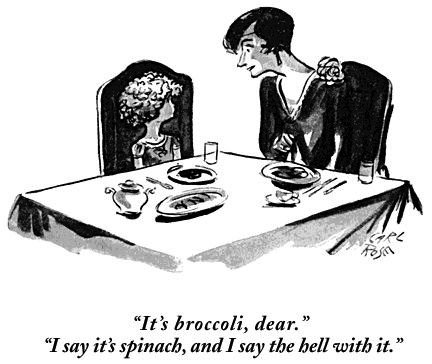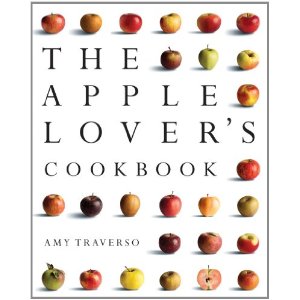So this is a little soap-box piece I’ve been meaning to share for awhile. It was partially inspired by the fact that the #1 question I’ve received at demos and book signings while promoting KEEPERS has easily been “how do you feed a picky eater?” or some iteration of that question. I know this topic has been addressed ad nauseum by many food writers before me, but after lots of thought on the subject—based not only on experiences with my own picky-eater, but the fact that I was actually the pickiest eater ever as a child— I thought there were still some things left unsaid. So here we go…
Chances are that you, or someone you know, is related to a picky eater. If this picky eater resides in your house, and you’re in charge of feeding him or her something other than cheese slices and Puffins, then I’m betting you’ve waged a fair amount of battles at the kitchen table. It’s exhausting, believe me I know, but maybe it doesn’t have to be, because perhaps the problem is not the picky eater, the problem is us.
First we have to ask ourselves why are we—and by “we†I mean the collective parenting culture that exists right now—so obsessed with the plight and reformation of the picky eater? Were we always? As a former picky-eater myself (I survived primarily on Ovaltine and bologna throughout most of my childhood), I would argue that we weren’t. Rather our outsized concern seems to be a newer-fixation, possibly a result of the “foodie†movement that also has us pickling, fermenting, and using words like foodie. On the positive-side of this movement, many of us are now more aware of where our food comes from, and hence are eating better—less processed foods, more grains, good fats, and leafy green vegetables, shopping for locally-grown produce and hormone-free meat, etc. If you have a family, then this newfound awareness extends to them as well, the desire for our children to eat good stuff is arguably even stronger than our own desire to follow a healthful diet. But there can be a dark side to all of this gung-ho foodieness, because what happens when you have a kid who doesn’t care to eat rainbow chard from the CSA or wild-caught salmon or a grass-fed beef burger? What then? Do you become a short-order cook and make the picky-child a customized meal every night, most likely a variation of pasta with butter? Or do you stick to your meal plan but resort to haggling, using dessert as the ultimate bargaining tool? Or perhaps you’ve long ago given in, and instead of making what you’d like to eat, design the menu around the picky-eater, arguing that you can eat salmon again when he goes to college?
I know these picky-eater scenarios well, not only because, as I mentioned, I was a picky eater myself; but because I’m also the parent of a picky-eater: Conor, a 6 year old boy who would happily subsist on jam if we let him. I’ve done all of the things I’ve mentioned above. None of them worked. So now? I’m following the same tactics of my forefathers: I do nothing. And you know what? It worked on me. As an adult I eat everything. Food is not only my passion, it’s my vocation.
As I mentioned before, easily the most frequent question my co-author and I have been asked—from Austin to Minneapolis, Brentwood to Brooklyn— is: “My son/daughter is a picky eater, what should I do?â€
These moms (and they’re mostly moms doing the asking) go on describe the typical play-by-play that occurs at dinner time, what I call the Eight Stages of Picky-Eater Negotiations: hope, realization, confusion, pleading, bribing, shouting, crying, capitulating. One mom, who attended a panel discussion I was on about family dinner, basically hit the nail on the head: “When it comes to food, my husband says, ‘There’s so much drama between you and the kid. Dinnertime has become so angsty.”
What all these concerned parents seem to want us to provide is a pearl of wisdom, a sure-thing strategy, a magical recipe that will suddenly turn their food-shunner into a ravenous omnivore. And there is advice a-plenty on the blogoshpere.
But the only advice I can offer, and the only advice that I think is true and right is:
Let them be.
They just want bread and butter? OK. An apple and a piece of cheese? That’s fine. Another peanut butter and jelly sandwich? Sure, if you make it yourself.
Of course, not every parent with a desire to fix the pick-eater will settle for this plan. I was on one panel discussion at a bookstore when a mom-blogger on the same panel volunteered her tips for dealing with a picky eater: She recommended making the child eat 1 tsp of everything on the plate. Her reasoning was that getting a child to try the food, may lead them to realize that they actually like the food. Perhaps this may work for some of the people, some of the time, but is this method (really a mild form of force-feeding, in my opinion) really the best way to teach a child the joy and pleasures of food and eating together as a family? Instead, why not ask why the kid doesn’t want that particular food in the first place? Yes, it may be irrational (the breaded chicken cutlet they happily ate only last week, is now “different†or “brownerâ€, even though you prepared it the exact same way this week; cue the “confusion†stage of the negotiations), but there might also be a legitimate reason. A deep, primal assuredness inside the kid’s physiology that’s saying “Nuh-uh. Not yet.â€
After listening to the bit of advice the blogger gave, knowing of course that she meant well, I couldn’t help but ask her:
“Were you a picky eater as a child?”
“No†she said.
I then explained that if my parents had made me eat 1 tsp of everything they served for dinner, not only would I have grown up with a strange loathing for measuring spoons, but I would have clamped my mouth even tighter. It would have made me feel manipulated, controlled, annoyed. I see this with Conor as well, he’s a lot more likely to taste something new if he decides to do so on his own, not as a result of cajoling or begging.
The other bit of advice you hear often is that if you become a better parent, you can miraculously change your child’s palate, as if picky-eaters were made and not born that way. But I can assure you this is not the case. Unlike Conor, Belle, my 10 year old, is an enthusiastic and adventurous eater, who adores shrimp cocktail and stinky cheese and other things that would send her brother running for the hills. Same house. Same mom. Same food.
So how did I go from being a picky-eater to a passionate one? I came to it on my own, when I was ready. One day, while I was in college, I looked at something that I’d previously found repulsive—a bowl of scrambled eggs being eaten by a roommate at a diner—and I thought to myself, “that actually looks goodâ€. I ordered it, devoured it, and haven’t looked back since. It was like someone switched a giant ON/OFF switch in my gullet.
Kudos to my parents, who never pushed or guilted me into eating anything. But what they did do was this (and I’m doing the same with my picky son, especially when the siren-call of pasta with butter calls…):
There was always good food in the house—no fast-food and no processed junk, a bowl of fresh fruit always at hand—we sat down to eat together as a family as much as we could, dinner was simple but homemade.
Without being force-fed, I was still being nourished. And that was enough.
*Special credit up top for this classic cartoon from The New Yorker. I was reminded of it while watching 60 Minutes, which did a terrific profile of cartoon editor Bob Mankoff. You can watch it HERE.








